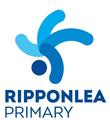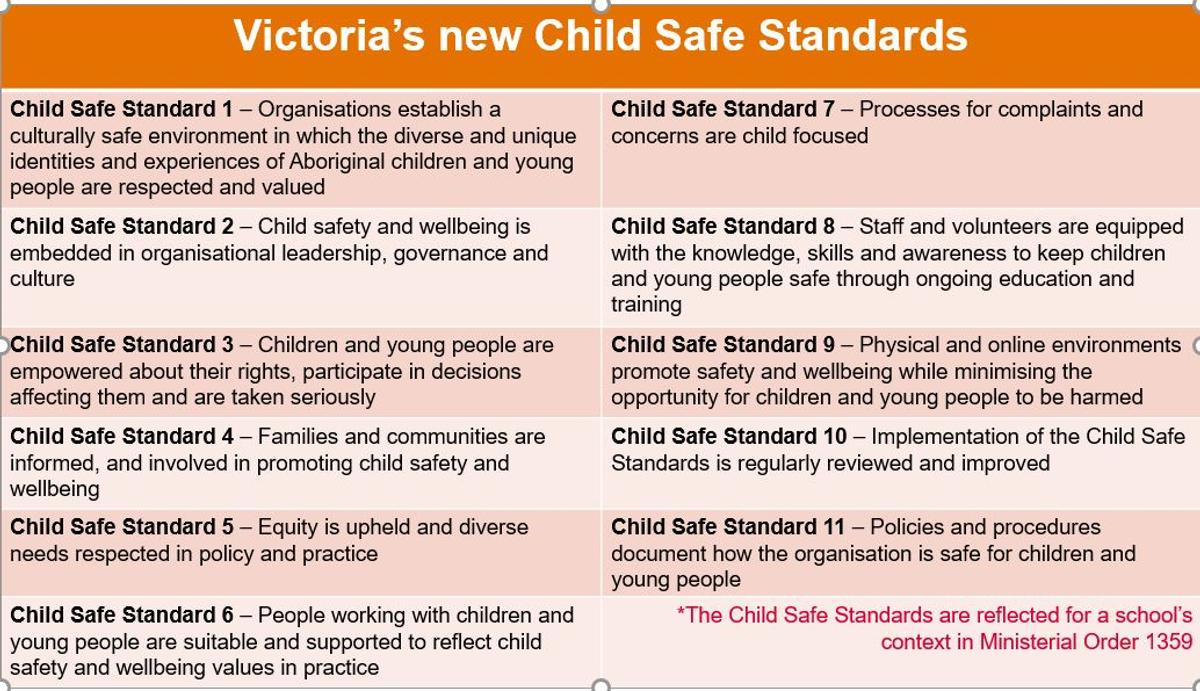CHILD SAFETY IS EVERYONE'S RESPONSIBILITY

CHILD SAFE STANDARD 4
Families and communities are informed and involved in promoting child safety and wellbeing.
In complying with Child Safe Standard 4
The school council, parents and carers, visitors, staff and principal will:
- ensure families participate in child safety and wellbeing decisions which affect their child
- ensure open communication with families and the school community about our child safety approach
- ensure child safety information is accessible
- involve families and the school community in developing and reviewing child safety and wellbeing policies and practices
- ensure families and carers are informed about the school’s governance and approach to child safety and wellbeing, including roles and responsibilities of school staff.
Create a welcoming environment
- Our administration officer is the best contact person for new enrolments and provides details on induction materials or school transition packs.
- We give out a family welcome pack that includes information about child safety, the school's complaints processes and how to raise concerns.
- We conduct school open tours and host community events, such as a school fete or fair, to welcome families and the broader community.
- We create a welcoming environment so community members and families feel respected, included and safe to come onto school grounds.
Engage families and communities in building a child-safe school
- We often ask parents and carers about their children. This can be in formal settings like parent/teacher conferences, or during chance meetings at pick-up and drop-off.
- We regularly engage with parents, carers and students and discuss the needs of students.
- We discuss how our school approaches child safety topics at parents, carers and school council meetings. We seek community views where appropriate to do and have processes in place to manage disclosures if they arise.
Provide regular opportunities to communicate
- We provide frequent opportunities for parents and carers to engage with staff to discuss their children’s experiences at school.
- We offer families and carers their preferred methods of communication, including email, meetings and workshops and use their responses to inform our communications approach.
- We incorporate child safety questions in parent and carer surveys to measure awareness and confidence in the school’s child safety approach and to support ongoing improvement.
- We remind the school community about the shared roles of parents, carers and school staff in creating a positive environment for learning by promoting the Respectful Behaviours in the School Community Policy.
- We host community workshops on child safety and wellbeing topics, for example, respectful relationships or online safety and provide families with take-home information to help them to talk to their children about safety and wellbeing at home.
- We communicate with and appropriately involve families at all stages of the process if a concern is raised or complaint is made.
Reflect the diversity of the school community
- Our newsletters and communications are inclusive. There is a diversity of family profiles that reflect the characteristics of our school community.
- We encourage volunteer positions from families from diverse backgrounds, including people with a disability, Aboriginal people, and those from culturally and linguistically diverse backgrounds.
Provide inclusive and accessible information
- We display the PROTECT poster (PDF, 203KB) in shared areas that are accessible to parents and the community.
- We make sure child safety information is easy to read and accessible to all.
- We provide links to the school’s child safety policies in the school’s social media posts, newsletters and staff briefings.
- We ensure students, school staff, and members of the school community know who to contact if they have a concern about child safety.
Build family and community involvement in child safety into business as usual
- We make child safety a standing item at school council meetings.
- We report on the outcomes of relevant reviews to staff and volunteers, community and families and students to show transparency and accountability.
- We encourage families and carers to advocate for their children and champion their safety while at school and in other environments, including extra-curricular activities such as sports, tutoring, music and language classes.
- We promote the whole school approach to Respectful Relationships and Resilience Rights and Respectful Relationships education to families.
- We acknowledge the important role that families and communities play in monitoring children’s safety and wellbeing and helping children to disclose concerns.
- We communicate with and appropriately involve families at all stages of the process if a concern or complaint is raised.

